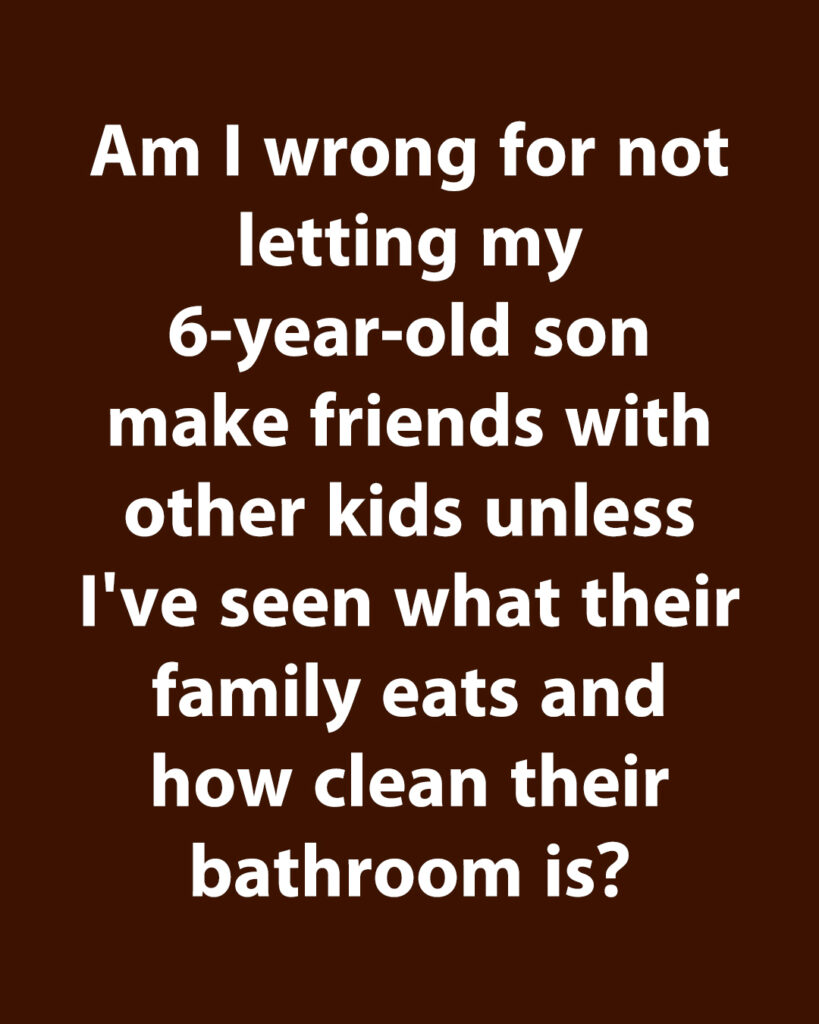I’ve always believed that a child’s environment shapes their character. So when my 6-year-old son started asking to play with classmates, I hesitated. Not because I don’t want him to have friends—but because I’ve seen how easily bad habits, poor hygiene, and unhealthy food choices can seep into a child’s life through peer influence.
Before I allow him to spend time at someone’s house, I need to know: What do they eat? Is their bathroom clean? Do they value health, respect, and discipline the way we do?
Some call me controlling. Others say I’m judgmental. But I’ve seen the consequences of neglect—kids with chronic stomach issues, behavioral problems, even lice outbreaks. I’m not trying to raise a bubble boy. I’m trying to raise a boy who knows his worth, who understands boundaries, and who doesn’t feel pressured to fit in at the cost of his well-being.
I’ve been accused of isolating him. But I do let him play—with kids whose families I’ve met, whose homes I’ve visited. I’m not asking for perfection. I’m asking for basic standards. If a family doesn’t wash hands before meals or lets their dog lick the dinner plates, I’m not comfortable sending my son there.
He’s young. Impressionable. And while some parents think exposure to “everything” builds resilience, I believe selective exposure builds discernment.
I know he feels left out sometimes. I see it in his eyes when other kids talk about sleepovers. But I also see how he’s thriving—healthy, confident, and kind. He’s learning that friendship isn’t just about proximity. It’s about shared values.

So am I wrong? Maybe. But I’d rather be wrong for being cautious than regretful for being careless.


